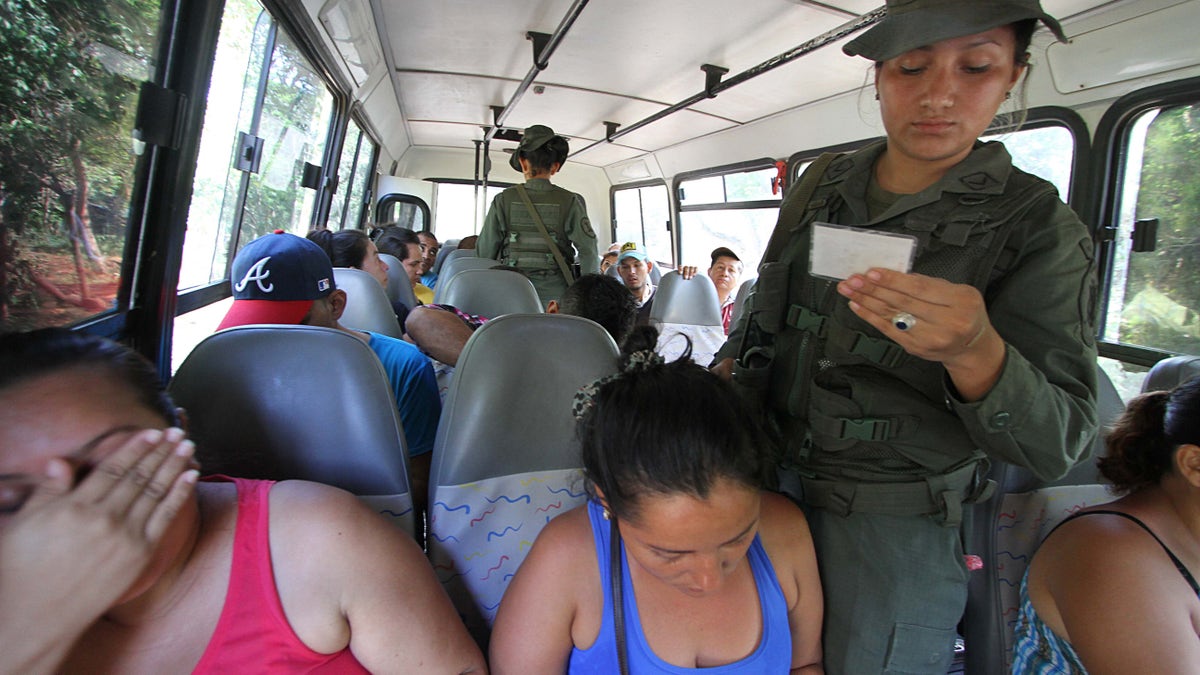
Venezuelan soldiers check the ID cards at a checkpoint along the border with Colombia. (AP)
Venezuela’s President Nicolas Maduro ordered Monday night the immediate closure of its border with Colombia, saying "mafias" operating from the neighboring country are smuggling hard-to-find bolivars that then they recycle back into Venezuela for a huge profit.
He blamed this for driving down the currency's value and destabilizing the socialist economy.
"We're intercepting 64 million bolivars (about $95,000) that was crossing by shortcuts and roads, so I decided to close the frontier with Colombia for 72 hours ... starting now," Maduro said in a radio and television announcement from Miraflores presidential palace.
The border shutdown comes as Venezuelans rush to spend their 100-bolivar notes before a Wednesday deadline for the bill to be taken out of circulation.
An estimated one-third of Venezuelans have no bank account and keep their savings in cash.
In the coming days, the country is expected to roll out six larger-denominated bills reaching as high as 20,000 bolivars. Many economists say the larger bills will fuel only faster inflation, which is already the highest in the world and forecast by the International Monetary Fund to soar past 1,000 percent in 2017.
Maduro has long accused criminal gangs operating along the 1,378-mile border of trying to smuggle everything from truckloads of subsidized food to gasoline sold in Venezuela at the world's cheapest prices.
There was no immediate comment by Colombia's government. President Juan Manuel Santos and his top aides are visiting several European capitals after the Colombian leader over the weekend received the Nobel Peace Prize in Oslo.
The border between the two countries was closed for a year in a Venezuelan effort to combat smuggling. It was reopened in August to allow the few Venezuelans who can still afford it to cross into Colombia to buy badly needed food and medicine.
In closing the border again, Maduro tried to sound conciliatory to Santos, saying the two had discussed the issue previously. He also seemed to acknowledge the seriousness of Venezuela's cash crunch by announcing a series of measures to stimulate electronic-based transactions.
Based on reporting by The Associated Press and EFE.
